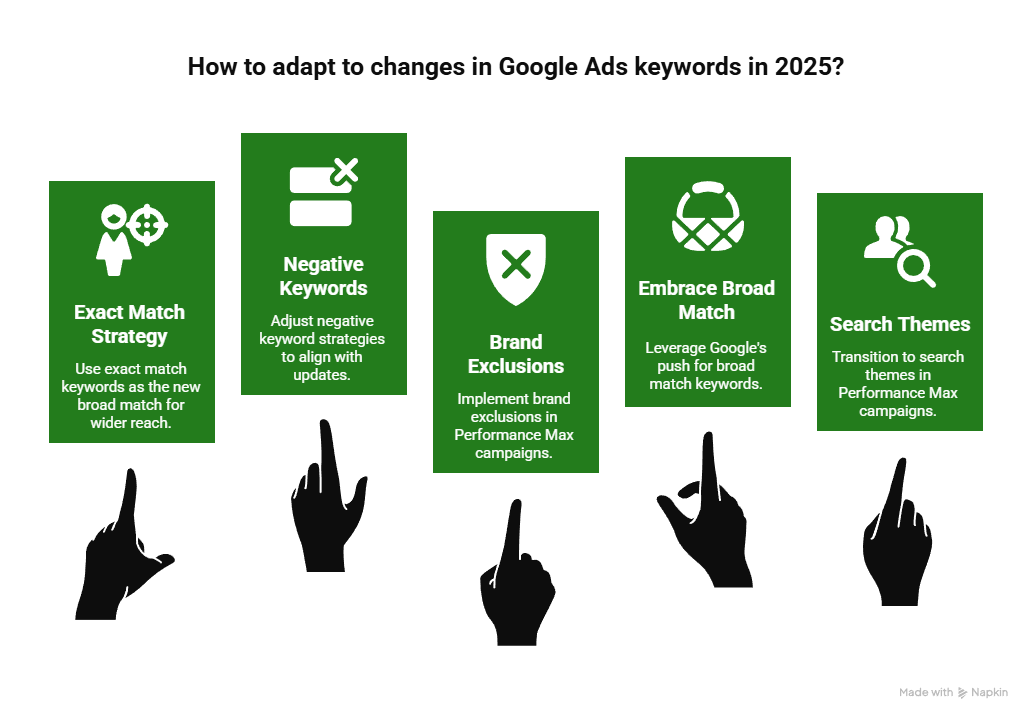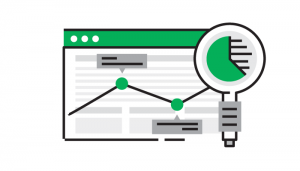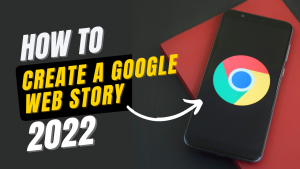Google Ads has undergone massive changes in recent years, especially when it comes to keyword targeting. What worked in 2020—or even 2023—may no longer be effective in 2025. With AI-driven automation, looser match types, and new features like search themes and brand exclusions, advertisers must rethink their keyword strategies.
In this guide, we’ll break down:
✔ How keyword match types have evolved (Exact ≠ Exact anymore!)
✔ The truth about negative keywords in 2025
✔ Why Google is pushing broad match for everything
✔ Performance Max’s growing reliance on search themes
✔ Expert predictions for the future of Google Ads keywords
Let’s dive in.
Table of Contents
1. Exact Match Is the New Broad Match
What Changed?
- Old Exact Match (Pre-2021): Ads showed only on searches that matched the keyword or close variants.
- New Exact Match (2025): Ads show for searches with the same intent or meaning, even if the words differ.
Example:
- Your exact match keyword: “digital marketing services”
- May now trigger ads for: “best Google Ads agency”
What Should You Do?
✅ Regularly audit your search terms report – Add irrelevant queries as negatives.
✅ Use scripts to enforce stricter matching (some Reddit users have shared working solutions).
✅ Don’t rely solely on exact match – Combine with audience targeting for better control.
2. Negative Keywords Don’t Work Like They Used To
The Big Update (2024-2025):
- Google now automatically blocks misspellings of your negative keywords.
- Example: Adding “analytics” as a negative will also block “anlytics,” “analitics,” etc.
Watch Out For:
⚠ Brand names with intentional misspellings (e.g., “Krispy Kreme”).
⚠ Homophones & homographs (e.g., “ad” vs. “add”).
Best Practices:
✅ Review negative lists frequently – Google’s AI isn’t perfect yet.
✅ Use brand exclusions (more on this next).
3. Brand Exclusions Are Now Available for Performance Max
What’s New?
- You can finally exclude your brand (or competitors) from Performance Max campaigns.
- Works via brand lists in campaign settings.
Limitations:
- Not 100% foolproof – Still check search themes and search terms.
- Rolling out gradually – Some advertisers report mixed results.
Pro Tip:
✅ Use this alongside branded search campaigns to avoid cannibalization.
4. Google Is Pushing Broad Match Hard (For Everything)

Why?
- Google claims AI + Smart Bidding makes broad match more efficient.
- Default setting in 2025: New search campaigns with Smart Bidding auto-enable broad match.
The Catch:
- Even if you add phrase/exact keywords, Google ignores match types if broad match is on.
- Broad match keywords now prioritize like exact match in auctions.
What Should You Do?
✅ Double-check campaign settings – Turn off broad match if you want tighter control.
✅ Use with Smart Bidding only – Manual bidding + broad match = risky.
5. Search Themes Are Replacing Keywords in Performance Max
What Are Search Themes?
- A way to guide (not fully control) Performance Max’s targeting.
- Example: Adding “luxury watches” helps Google understand intent but doesn’t guarantee ads will only show for that term.
Key Insight:
- Search themes compete with phrase/broad match in campaign prioritization.
- Without them, search campaigns usually outrank PMax.
Best Use Case:
✅ Supplement PMax campaigns – Don’t rely solely on them.
6. Expert Predictions: The Future of Google Ads Keywords
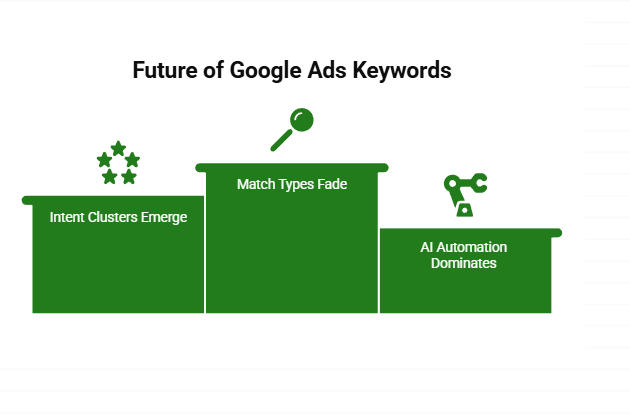
We asked top PPC experts what Google Ads keywords will look like beyond 2025. Here’s what they said:
1. Match Types Will Fade Away
“Phrase match will likely disappear, leaving only exact and broad.” – Meriem Nacer, 4M Digital Consulting
2. Keywords → Intent Clusters
“Keywords will be replaced with search intent clusters, like in PMax.” – Anne Bui, Puffer Digital
3. More AI, Less Manual Control
“Google will keep pushing automation—advertisers must adapt.” – Navah Hopkins, Optmyzr
Final Thoughts: How to Adapt in 2025
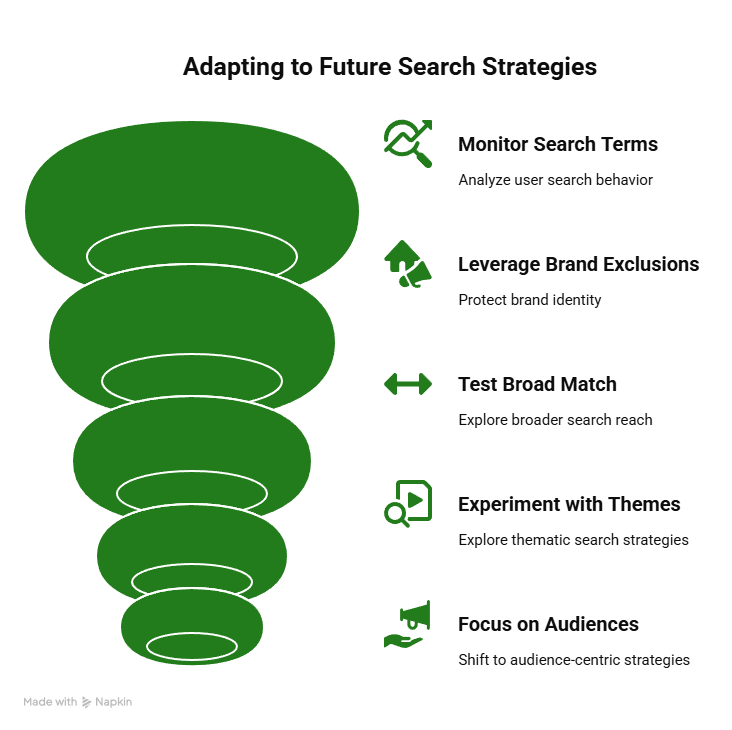
- Stop assuming exact match is exact – Monitor search terms closely.
- Leverage brand exclusions – Especially in PMax.
- Test broad match (carefully) – Only with Smart Bidding.
- Experiment with search themes – But don’t abandon keywords yet.
- Prepare for a keyword-less future – Focus on audiences & intent.
Need Help Optimizing Your Google Ads?
At Rightly Digital, we stay ahead of Google’s changes so you don’t have to. Send me a DM today by hitting the WhatsApp icon!
What’s your biggest Google Ads keyword challenge in 2025? Let us know in the comments!
Odell Dias is the founder of RightlyDigital.com where Online Marketing concepts are made easy. He has over 10 years of experience in the Digital Marketing industry, helping brands and individuals alike to achieve their marketing goals. He is known as one of the best digital marketing freelancers for small-to-medium-sized businesses.
